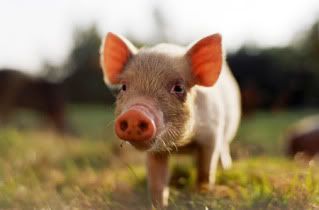Clean and Unclean Food in the OT

Say to the Israelites: ‘Of all the animals that live on land, these are the ones you may eat... - Lev 11:2The food regulations of Leviticus 11 and Deuteronomy 14 have stumped many a modern Bible reader and various explanations have been offered to account them.
Some believe that these ancient food regulations anticipate the findings of modern science - while clean animals were safe for human consumption, unclean animals were not. Several factors disprove this - pork (while having a high potential for transmitting bacteria), cooked thoroughly, is as safe for human consumption as any other clean food. Additionally, camel meat poses no danger to health. If health was the reason for prohibition, it is strange that this reason is not mentioned in the Bible as additional encouragement not to eat unclean meats. Plus, from the Christian perspective, it would be unthinkable that Jesus would later then abolish these rules that if they were supposed to protect the health of those who abide by them! Others think that the unclean meats were associated with pagan rituals. But the bull, prominent in Egyptian and Canaanite religions, was considered clean.
The most satisfactory explanation is that for the Israelites, the animal world was structured in the same way as the human world. The clean and unclean animals represent clean and unclean people, Israelites and non-Israelites. Within the clean category, two further classes are noted, sacrificial and non-sacrificial; corresponding to the human classes of priestly and laity. The restriction of their diet to clean animals reminded them of their obligation to be a clean people. These made it difficult for Israelites to partake of meals provided by non-Israelites, limiting their contact with others who might compromise their status as a holy nation.
A common factor among many unclean animals is that they depend on the death of other creatures to survive: they eat meat. The idea that animals associated with death should be viewed as unclean is in keeping with Leviticus 17. Death and uncleanness is generally linked, being the opposites of life and holiness. Eating only clean animals distanced them from death, perceived as the source of uncleanness.
Another common factor is that the unclean animals were, in motion or diet, not fitting neatly into the ‘pure-bred’ categories of Genesis 1: birds that fly, fish that swim and land animals that walk (primarily plant-eating). These apparent ‘mongrel’ creatures are water-dwellers without scales or fins, and those that moved or ate in a different manner. This distinction is echoed in Lev 19:19, where God prohibits the mixed breeding of animals, mixed plantings and mixed threads.
The food regulations highlight two theological principles. The distinction between clean an unclean emphasises the calling of Israel to be a holy nation, set apart; the clean and unclean animals symbolise the Israelites and the non-Israelites. Thus religious truths were reflected in the daily routine associated with eating.
The concept of clean and unclean foods appears in a few NT passages. In the parallel passages Matthew 15:1-20 and Mark 7:1-23, focus is on Jesus' attitude towards eating something unclean, though it centres on their hands which were unwashed rather than the meat being unclean. Jesus explained that it is not what goes into a man that make him unclean but what comes out. Mark adds that Jesus thus declared all foods clean (7:19).
It also arises in Peter's visit to Cornelius, a God-fearing Gentile (Acts 10:1-11:18). Prior to the visit, Peter had a vision. Previously God has introduced the concept of clean and unclean to separate Israel from other nations. But this distinction was now abandoned in the NT period to show that God no longer distinguished between clean Jews and unclean Gentiles. The death, resurrection and ascension of Christ made Gentiles also recipients of God's grace, thus the food regulations no longer served any meaningful purpose. Although the early church abandoned distinction between clean and unclean foods, they still adhered to the principle of not eating blood, seen in the conclusion reached at the Council of Jerusalem (cf. Acts 15:20).
In short, if asked whether Christians can eat 'unclean' foods, my answer would be, yes, of course. They are associated with ritual holiness that we no longer have to abide by. However, God is still concerned with our holiness, and the demands of ethical holiness elsewhere in Leviticus are still relevant. While we may not follow the letter of the law, we are still to strive to be ethically holy because God is holy.
Sources: TD Alexander's From Paradise to the Promised Land, Chapter 18, and also NIV Quest Study Bible notes on Lev 11.